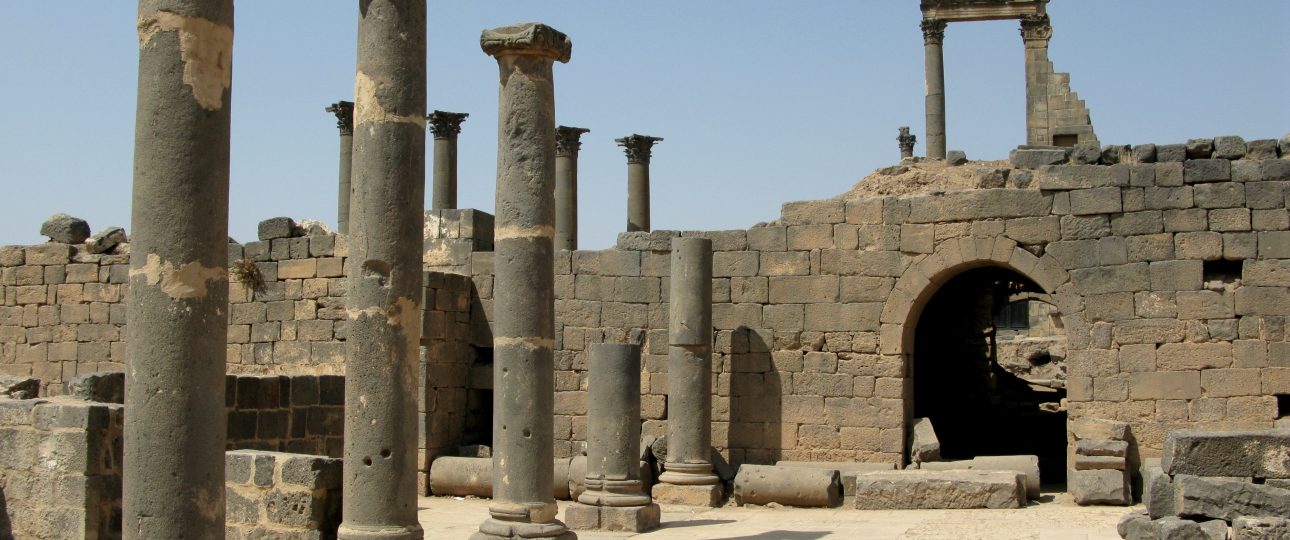Bosra, Syria: Exploring Ancient History Amidst Modern Challenges
History and Cultural Significance
Bosra, located in southern Syria, is a city with a rich tapestry of history stretching back over 2,000 years. Once a bustling Roman city, it was a pivotal stop on the ancient Silk Road, facilitating trade and cultural exchange. Today, Bosra is recognized as a UNESCO World Heritage Site, though it has been on the List of World Heritage in Danger since 2013 due to the ongoing conflict in Syria.
The Roman Theatre, a remarkable structure from the 2nd century AD, stands as a testament to the city’s historical significance. Despite the damage from the civil war, this amphitheater, which could originally seat up to 15,000 spectators, continues to awe visitors with its grandeur.
Best Time to Visit
For those considering a visit, spring and fall offer the most comfortable weather, with mild temperatures ideal for exploring. Summers can be intensely hot, often exceeding 100°F (38°C), while winters can be quite chilly. If you prefer fewer crowds and don’t mind the cold, winter might be an option.
Getting There
Traveling to Bosra involves flying into Damascus International Airport, the nearest major airport. From there, a taxi or private car can take you to Bosra in about 1.5 hours, traffic permitting. Be aware of the current security situation and travel advisories before planning your trip.
Local Transportation
Once in Bosra, walking is the best way to explore the compact city. Its narrow streets and ancient alleyways are best appreciated on foot. Alternatively, renting a bicycle or hiring a local guide can enhance your experience, offering insights into the city’s storied past.
Notable Attractions
Roman Theatre
The Roman Theatre is the centerpiece of Bosra’s historical attractions. Climbing to the top rows provides a panoramic view of the theater and the surrounding ruins, a sight that captures the city’s ancient splendor.
Bosra Citadel
Surrounding the Roman Theatre is the Bosra Citadel, a fortress with origins in the Byzantine period. Despite damage from recent conflicts, it remains a fascinating site to explore, offering views of the city and its historical landscape.
Al-Omari Mosque
One of the oldest surviving mosques, the Al-Omari Mosque, stands as a significant religious and architectural landmark. Its intricate details and serene atmosphere provide a glimpse into the spiritual life of ancient Bosra.
Additional Sites
While exploring, don’t miss the Kharaba and Gemarrin Bridges, as well as Bab al-Hawa, the western gate of the city dating back to the 2nd century AD. These sites, though affected by the war, still offer a window into the engineering prowess of ancient civilizations.
Where to Stay
Accommodation in Bosra ranges from hotels to guesthouses, catering to various preferences and budgets. Options include:
- Hotel Bosra: Offers comfortable rooms with modern amenities.
- Al-Sham Guesthouse: Provides a traditional ambiance for a more authentic experience.
- Bosra Camping Site: Ideal for those who enjoy the outdoors and wish to connect with nature.
Considerations
Traveling to Bosra requires careful planning due to the ongoing conflict in Syria. Always check the latest travel advisories and ensure your safety is a priority. Despite the challenges, Bosra’s historical and cultural treasures offer a unique glimpse into the past, making it a destination worth considering for those with a keen interest in history and archaeology.



